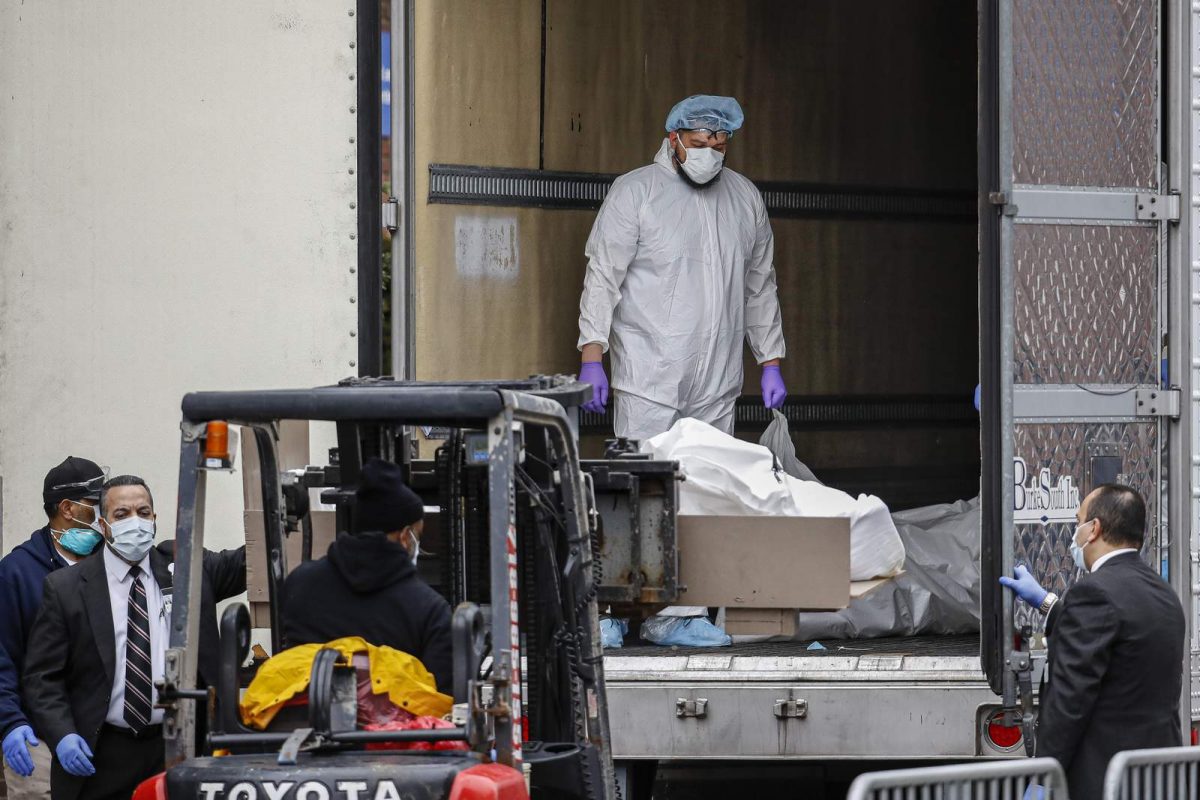(Jamaica Gleaner) Clara Graham* was close to the end of her shift last Wednesday at a New York City hospital when she could no longer hold it together and the tears burst like a dam.
She was at the epicentre of the United States’ worst-hit region battling the outbreak of the much-feared coronavirus disease 2019 (COVID-19).
As the 29-year-old nursing assistant stepped out, she was suddenly overwhelmed by the sight of dead bodies all around her. Just as jarring was the countless times she had heard the words ‘code blue’ that day – the phrase used to alert staff to the possible death of a COVID-19 patient.
In a flash it was all too much. The Jamaican healthcare worker retreated to a quiet corner inside Nassau University Medical Centre in Long Island and telephoned her best friend back in Jamaica and cried her heart out.
FEELING HELPLESS
“You try to help, but you feel helpless, you feel like you are not doing enough,” a broken Graham, who is one year away from completing her studies to become a registered nurse, told The Sunday Gleaner during a phone interview.
“I’m just so overwhelmed and emotional because now I’m seeing young people dying. It’s just a reality check because you thought this was something that only affected the older population and people with underlying conditions.”
Despite the emotional toll, Graham made it clear that she still summons the courage to carry out her duties every day.
“I have to be understanding. It’s really tiring and everyone is just exhausted, but it’s a job that must be done,” she stated.
What’s worse, Graham said, is the fact that social distancing and other measures implemented to help contain the spread of COVID-19 is denying families the opportunity to care for their stricken relatives or to say one last goodbye.
“We do not allow any visitors at all at the hospital, so loved ones can’t even reach out, there is no one there to hold their hands. It’s basically only us that they have,” the healthcare worker shared after she managed to compose herself.
“And then after they die, the family doesn’t even get to have a burial, they don’t get to say goodbye, they don’t get a body to bury.”
HARDEST-HIT REGION
So far the hardest-hit region in the United States, New York, is reporting approximately 102,863 confirmed cases of the new coronavirus, with an estimated 2,935 deaths. In New York City, which has become the epicentre of the global pandemic, authorities revealed that there were approximately 57,160 confirmed cases of the virus, with the death toll at an estimated 1,867.
Officials disclosed, too, that Long Island is seeing a growing spread of the respiratory disease, with 1,400 new cases each in Nassau and Suffolk counties in recent days.
Before her emotional meltdown last Wednesday, Graham recalled that there were 11 ‘code blue’ alerts at the hospital that day. By her count, there were 13 COVID-19 deaths two days earlier.
“We have three ice trucks outside the hospital that we just put the bodies on because the morgue is filled. We just have trucks with dead bodies only,” she recounted.
The nursing assistant is acutely aware of the fact that her job puts her in harm’s way, having watched one of her colleagues, a 53-year-old male anaesthesiologist, die from the virus, days after he helped to save the life of a COVID-19 patient.
“He intubated a patient that turned out to be COVID-19-positive. We didn’t know. He got sick, he got admitted and while he was being intubated, he died,” she said.
The young lady said she was not aware of any Jamaicans being among the dead or confirmed cases at Nassau University Medical Centre. She is one of several Jamaican healthcare workers employed at the hospital.
Born and raised in Islington, St Mary, Graham emigrated to the US in 2009 when she was 17 years old. The former St Mary High School student admitted that she was simply trying to earn a living when she sought employment with Nassau University Medical Centre.
“It was a quick way of getting a job for me at that time. This was not what I wanted to do. This is a whole switch,” she stated.
*Name changed to protect identity










